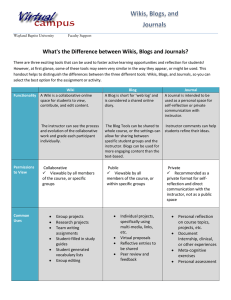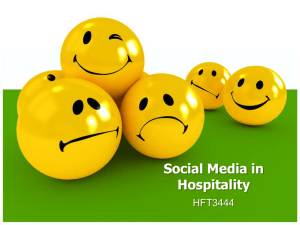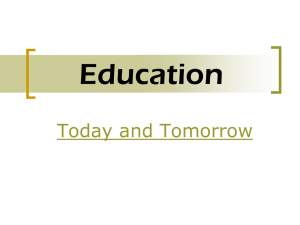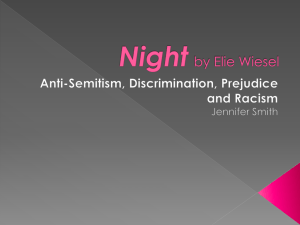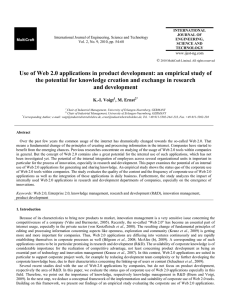Wikis, blogs, and podcasts
advertisement
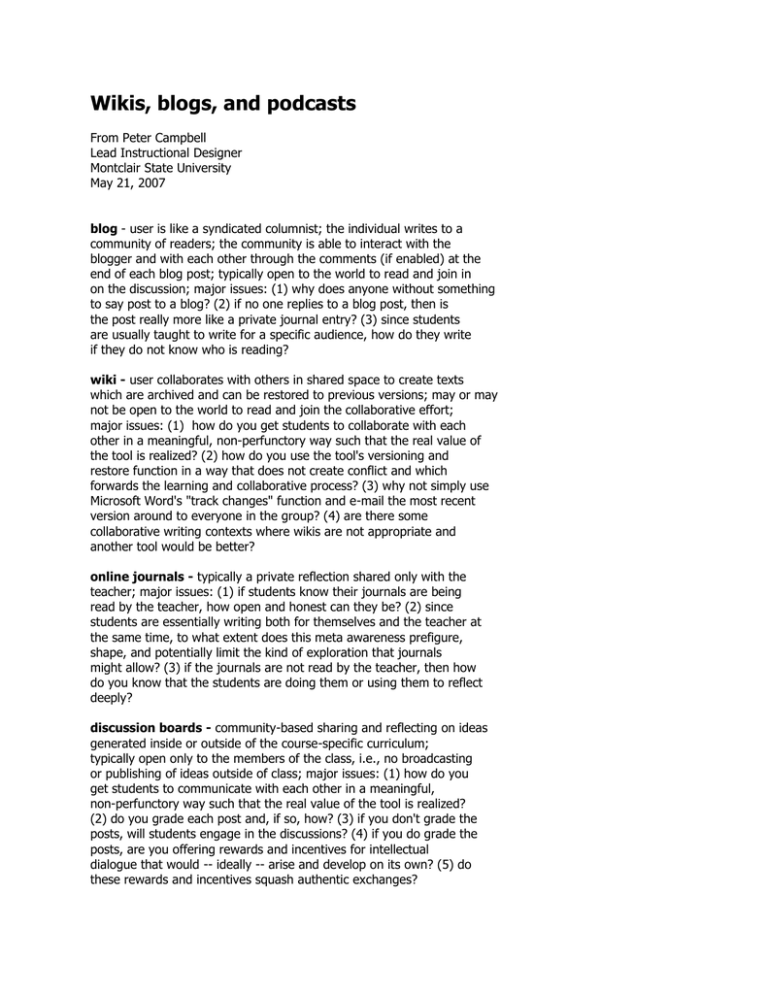
Wikis, blogs, and podcasts From Peter Campbell Lead Instructional Designer Montclair State University May 21, 2007 blog - user is like a syndicated columnist; the individual writes to a community of readers; the community is able to interact with the blogger and with each other through the comments (if enabled) at the end of each blog post; typically open to the world to read and join in on the discussion; major issues: (1) why does anyone without something to say post to a blog? (2) if no one replies to a blog post, then is the post really more like a private journal entry? (3) since students are usually taught to write for a specific audience, how do they write if they do not know who is reading? wiki - user collaborates with others in shared space to create texts which are archived and can be restored to previous versions; may or may not be open to the world to read and join the collaborative effort; major issues: (1) how do you get students to collaborate with each other in a meaningful, non-perfunctory way such that the real value of the tool is realized? (2) how do you use the tool's versioning and restore function in a way that does not create conflict and which forwards the learning and collaborative process? (3) why not simply use Microsoft Word's "track changes" function and e-mail the most recent version around to everyone in the group? (4) are there some collaborative writing contexts where wikis are not appropriate and another tool would be better? online journals - typically a private reflection shared only with the teacher; major issues: (1) if students know their journals are being read by the teacher, how open and honest can they be? (2) since students are essentially writing both for themselves and the teacher at the same time, to what extent does this meta awareness prefigure, shape, and potentially limit the kind of exploration that journals might allow? (3) if the journals are not read by the teacher, then how do you know that the students are doing them or using them to reflect deeply? discussion boards - community-based sharing and reflecting on ideas generated inside or outside of the course-specific curriculum; typically open only to the members of the class, i.e., no broadcasting or publishing of ideas outside of class; major issues: (1) how do you get students to communicate with each other in a meaningful, non-perfunctory way such that the real value of the tool is realized? (2) do you grade each post and, if so, how? (3) if you don't grade the posts, will students engage in the discussions? (4) if you do grade the posts, are you offering rewards and incentives for intellectual dialogue that would -- ideally -- arise and develop on its own? (5) do these rewards and incentives squash authentic exchanges? But as you note in your use of wikis, you are combining the elements of wikis and discussion boards. It seems that your students are using blogs as a kind of public journal. And as some of the examples that others have provided show, blogs are also being used as a way for groups to collaborate. So are the above distinctions valid? It seems like part of the fun -and intellectual challenge -- of these tools is to let their usefulness and their functions emerge as students and teachers use them. Of course, this pre-supposes a certain kind of open, more constructivist oriented pedagogy. If you've got content to cover and a syllabus to keep up with, who's got time for all that exploration stuff???
